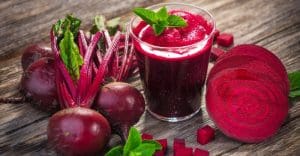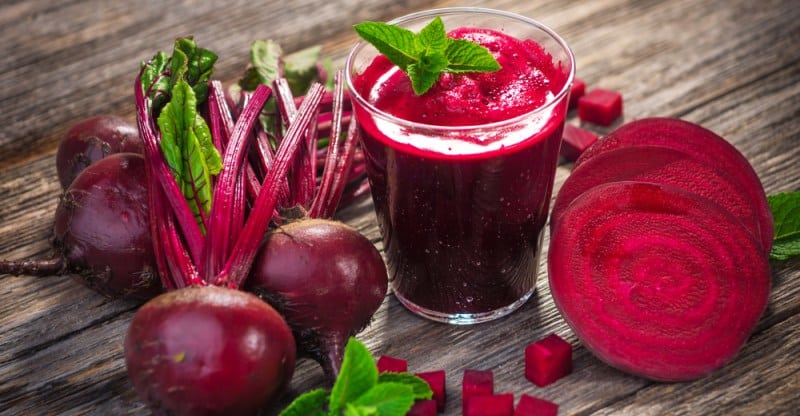 Athletes and fitness enthusiasts are always on the search for the next great thing in sports nutrition supplementation. We want to run faster. Lift heavier. Get better. Look better. Be better. Win at life. And that desire has fueled the sports nutrition industry to become one of the fastest growing around.
Athletes and fitness enthusiasts are always on the search for the next great thing in sports nutrition supplementation. We want to run faster. Lift heavier. Get better. Look better. Be better. Win at life. And that desire has fueled the sports nutrition industry to become one of the fastest growing around.
In 2016, sports nutrition generated $28.37 billion; by 2022, that number is expected to hit $45.27 billion. And as sports nutrition sales grow, the athletes among us (and casual sports nutrition supplementers, too) are seeing the benefits.
While supplements such as protein powders and gainers are important elements for optimizing your workout and recovery, the Holy Grail of sports nutrition might be as close as your refrigerator. And if it’s not there now, you should definitely go grocery shopping today.
It turns out that beetroot is an extremely effective way for athletes to improve aerobic capacity and performance. And there’s even good science out there to justify the claims. But what is beetroot juice, and why is it the superfood of choice for athletes? We’ve got those answers for you. Consider this your guide to the humble beetroot.
What makes beetroots so special?
Beetroots, also known simply as “beets,” are full of nitrites, which many researchers now believe are an important nutrient for good health. When you eat foods containing nitrites, your body synthesizes the element, transforming it into nitric oxide. As an athlete, you may have heard of nitric oxide and its many benefits for you. But who knew that the humble beet—the vegetable most people overlook or avoid—was such an athletic goldmine?
The benefits of eating and drinking beets
Here are four amazing benefits that beets have on health, and some easy ways to increase your beet consumption.
Beets fight inflammation
Inflammation is the starting point for nearly every disease on the planet, and many natural health strategies are oriented toward this critical issue. Beets have a natural ability to stave off inflammation, which left unchecked could lead to such killers as heart disease and cancer. Some studies done on rats examined how beets might affect inflammation. The result? Kidney inflammation decreased when beets were added to the rodents’ diet. The results, though hopeful, have yet to be replicated with humans. However, another anti-inflammation study showed promise in decreasing osteoarthritis in human participants.
Beets improve athletic performance
Nitrites, which become nitric oxide in the body, have a number of health benefits once they undergo this transformation. A natural vasodilator, nitric oxide allows more oxygen and blood to flow to your muscles, improving both endurance and muscle recovery. The oxygen and blood flow also create more energy. The best part is that beets contain a ton of nitrites. Studies have shown that eating beets can improve cycling and intense athletic performance. Another study showed that men who supplemented with beetroot juice for only two weeks experienced greater muscle growth and enhanced endurance.
Beets pack a powerful nutritional punch
Beets boast quite the impressive nutritional profile. At just 44 calories per beet, they are high in vitamins C and B6, plus folate, manganese, potassium, phosphorous, manganese and fiber. They even pack an additional punch with 1.7 grams of protein. And we won’t even mention the nitrites they contain—okay, we already have. That goes to show that you don’t have to eat all the time to get in your nutrients. (However, if you’re trying to gain weight and muscle mass, you might want to consider supplementing with a mass gainer to boost your calorie and nutrition intake.)
Beets may aid in weight loss
The low caloric value of beets is partially responsible for their use as a weight-loss aid. Particularly high in water, beets also contain protein and fiber, which are important macronutrients for achieving weight loss goals. While studies have yet to be performed in the area of beet consumption for weight loss, preliminary research into their nutritional value shows promise.
How to easily add more beets to your diet
Beetroot salads or coleslaws, beetroot dips, beetroot juice and beetroot leaves are tasty ways to get the nitrite rich vegetable into your body. However, do be aware that beets contain a lot of sugar, so if you’re on a low sugar diet, or are a diabetic, you should talk to your doctor before chowing down.
The benefits of beets are amazing. But if beets aren’t really your thing you don’t have to wave goodbye to your athletic goals just yet. While nitric oxide doesn’t come in supplement form, there are plenty of supplements that promote synthesis or increase the bioavailability of nitric oxide.
I’m not just a supplement analyst. I’m an extremely qualified one! I am a Certified Nutrition Coach (CNC) and actually received my certification directly from the National Academy of Sports Medicine. I am also a Nutrition & Wellness Consultant, certified by the American Fitness Professionals Association (AFPA).



